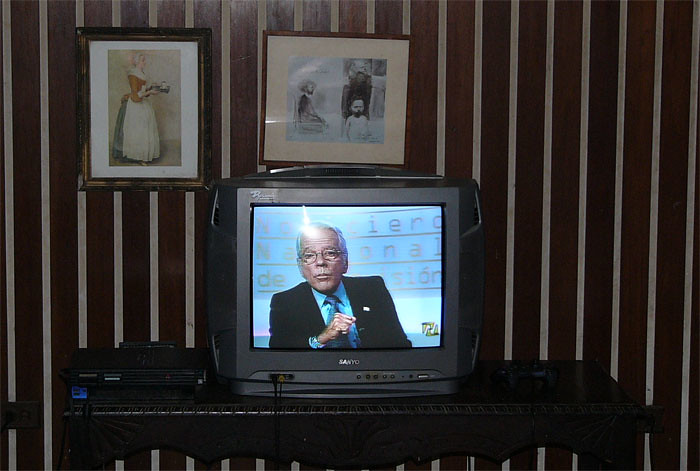
After letting me in, they pointed to the hospital bed with clean linens and asked me to sit. They both attempted, with their subtle tricks, to hide the cylindrical cube full of cotton balls stained in red that laid right beneath it. They couldn’t.
“How are you, how are you feeling?” the male doctor asked me in an amicable tone, while he unwrapped his medical instruments and prepared his space.
“I am perfectly fine,” I joked. “You are the ones who tell me I’m not.”
They both smiled, maybe because of my skirmish way of fending off the irresistibly disturbing nerves that made me clumsy and most likely gave my face an expression similar to stupidity or abandonment.
The doctor seemed to be younger than he really was, probably due to his long hair, tied back in a pony tail, that fell over the back of his white gown. The lady, a robust brunette, with an easy smile. Later, I learned a curious fact: they’re husband and wife. Three children in common.
‘First, let me borrow your finger,’ he said, in his hand was a sting that appeared in my childhood nightmares to puncture the tip of all five of my fingers from both hands. “Bad start,” I thought with bitterness. I’ve always preferred every needle in the world in my arms or butt, than that sharpness sucking out drops of blood from my finger tips.
Said and done. An electric shock on my middle finger: “I always do it without shame,” he said. “If I do it with pity I might have to pinch twice.” And I agreed. Yes, he definitely does it very well. And with no shame at all.
Then, they both took a few seconds. He spoke again:
“You should basically already know how the process goes, but we’ll explain regardless. Now you should lay on your side, in fetal possession, facing the wall and with your back to us. You’re going to hold your legs as if you are really cold. We are going to lower your pants a little bit and pull up your shirt. You will feel some jabs on the iliac crest, specifically in one of those small dents right on top of your butt. Later, a subtle sting: the anesthesia.
“The anesthesia is just to fool my psyche” I thought. I knew perfectly well that it would only numb the muscle zone, but further than that, where we were really going, there would be nothing it could do.
“The first thing we’re going to do is take a sample of the marrow, from the inside of the bone,” he continued. “That is the biopsy. There, you won’t feel a thing. After, there will be some manipulation, and perhaps some pain. We need to take a sample from the hip’s flat bone in order to do a biopsy. The most important part is that you can’t move for anything in the world. There are some patients that scream, and others say the anticipation is worse than what it really is at the end… but no movement, ok?”
And I agreed, knowing – just by pure intuition – that those stories of painless, fast procedures, are just as beautiful as fairy tales, but even a little more fake. They are the doctors manual’s descriptions, their attempt to avoid giving us pain, and they place them in our heads as a way of distraction. But just that. They know it.
What did I feel during that mortal second, sort of like “the beginning of the end,” when I had to place myself in such a vulnerable position? Abandonment. That exactly. I felt just as helpless, as fickle, as those fetuses I was now pretending to mimic. The certainty of knowing that nothing that could come after this moment would be pleasant. And that I couldn’t do anything to avoid it.
A freezing, super thin serpent, advancing inside of me. A first jab: the sour sting of the anesthesia covering my tissue. Movements from the doctor’s fingers over the infiltrated area, stimulating the hip’s surface with his hands. Then, a second jab. And a third. A bearable pain so far: something that carefully penetrated, that placed a needle there, where the marrow grows, and that sucked out part of that spongy material.
Yes, palpable pain. My hands clung to the railing of the stretcher, feeling goosebumps and electrical shocks that started in my body and ended up mixing with the coldness of the needle. Something like that, more or less: when the only guide is your imagination and the carnal perception, one cannot not be too exact.
Some minutes of intense but controllable pain, while I thought, between muscle and cheek contractions: “It’s almost over, it’s almost over, it’s almost over.” And it was, at some point. I stopped feeling the snake inside of me, the frigid material of the needle. But then the feminine voice, as encouraging as a mother’s, said behind me:
“Now we’re going to the second part. Be strong, let’s go.”
And nothing was rational, coherent again. Nothing was controllable anymore.
A piece metal started moving forward centimeter by centimeter, brusque, violent, moving tissue in search of its objective: the bone. A huge trocar (As I later saw), a spiked cylinder, with another cylinder inside, that barely gained ground with the push of the trained hands, and for every advancing millimeter would extract grimaces from my face. Always inside, always thick: a short path measures in inches path I experienced as endless.
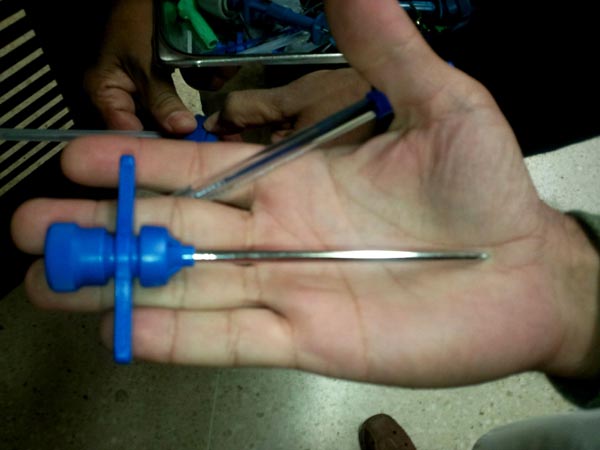
Trocar used for bone marrow biopsies.
A light stump against the hip: the bone resistance. And almost immediately the indescribable, unpronounceable, extraverbal pain as is almost everything sublime or terrible, from the metal clinging to the bone and intending to detach a bone particle.
Could I pick an adjective for that pain? Yes. But it is a poetic adjective that only I can comprehend, and only I can know how exact it is. This pain wasn’t “fulminating,” nor “infernal,” according to how we try to describe terrible things. It was rather a sweet pain. As simple as that. A sweet pain that made me scream without opening my mouth, and tensed my hands against the railings while inside me the tip of a sharp cylinder hurt my bone.
“You’ll feel a pull,” said a voice I couldn’t identify: whether his or hers.
And the pull came. But it didn’t detach anything: my hip stayed intact. A few seconds to rest. I would dare to assert that it was a rest for them too, vaguely disappointed for not getting it the first time.
Then, on that gray-like second where even thinking was bothersome, a door that opens, that closes, and a smell that at this point I could perfectly recognize, was snuggling with stealth. A swaying voice: “How is my boy behaving,” that in an instant disperses the terror that makes me tremble, that makes my hands and feet sweat in the middle of an antarctic climate.
Her name: Lismary Cruz. The hematologist who, starting a week ago, would come say hi at seven-thirty everyday with a smile similar to a balm, auscultating me, answering my never-ending questionnaires with an encouraging presence that was more than professional, it was angelic; and that along with other specialists was dedicated to something that, at least for me, had no small importance: to put their commitment and talent in efforts of preserving my life.
Her hair was jet black, wavy, accentuating her white skin. Small height, and with a facial beauty that didn’t allow her – according to her funny and egocentric words – to scare the septuagenarian patient next to my bed, that was complaining about his hiccups: “I have to find someone very ugly to scare you so your hiccups go away, dear. Even if I wanted, I wouldn’t be able to.” And then, the amusing smile.
“How is my boy behaving?” she said, her voice breaking the momentary silence.
Somebody answered excellent, that I am a man, that I was taking it without moving not even a millimeter, and I, wanting to ask what it meant to be a man, what it meant to take it, how to face what I was now feeling, and that was growing again, gaining more strength, ever since that masculine voice, which despite everything that was comforting said: “Here we go again.”
Lismary got close to me, she put her hands near mine. My instinct asking for help: I took her hand as if she was my mother, or my sister, or my girlfriend: taking care not to hurt her, gagged from the pain but calm because, unconsciously somehow, I trusted her more than the rest. I believed that if she was present nothing bad could happen to me. Even though, in reality, this wasn’t true.
The pushes they needed to introduce the trocar once again made my torso move. At times they were so strong they moved me some degrees. It hurt. It deeply hurt. My legs were shaking. Lismary’s support took me to a subliminal place as did her voice, talking close to me, attempting to calm me down, saying “We’re almost done,” when the truth was we weren’t; suddenly her voice, even though I can’t remember right now why or how, started talking to me about origami, about the artistic shapes some can give paper, and about how she felt a passion in making them.
“You have to give me one, I’ve never had one,” I said on a moment of lucidity and peace, as I immediately close my eyes and feel how my tears finally won the battle. They grew tightly against my eyelids. And the trocar attaching to my bone, biting it, attempting to latch on to it in order to cut a piece… as the pull came again, and once again, in vain.
Silence again. I hear them stay quiet. And I hear a hectic noise of hands and instruments, and steps I later understood: the doctor had to yield to the masculine strength. My bones were too hard. That’s exactly what they told me. Lucky me, young and strong bones; but now, that was unfortunate.
The inward pushes, the meat not giving in, the pain that’s already bittersweet, which causes me spasms and quick complaints I shut with my knees on my mouth. I want everything to be over already. I wish it had never started. It hurts too much. Way too much. Sometimes it feels as if it’s drilling, others as if it’s crushing. I don’t know. I don’t even know how I didn’t totally faint. It may be because of Lismary’s redeeming voice, that says things I do not understand but that do soothe me; maybe because with my suffering I thank, after all, these stupendous doctors that take the time to study me and focus all their thinking on me.
An inaudible crunch. No ears heard it. Rather it was heard by my insides. And the trocar now came counterclockwise, coming out, finally imprisoning a yellowish particle (bones are not white) that I didn’t see, and I don’t want to know if it was extremely small or gigantic, but it put an end to a frightful half hour.
Now I could relax. I was now able to slacken my muscles. Feel the cotton balls cleaning me up, that would also end up in the cylinder bucket under the stretcher. I could hear my hematologist’s voice saying: ” We finished, we finished”… with a secret compassion she couldn’t confess, with an empathy for my pain that professionally she couldn’t show, but that I know she experienced.
Sitting down, getting up. Looking at those two young doctors, also future hematologists, that didn’t allow that slight moment to fill up with grayness despite the suffering, and dedicated jokes and encouraging words to me. Their names, which I also learned later on: Roy Roman, Hany Trujillo. I looked at them and I thought, for a second: I am nothing. Artists are nothing. I write for me, I don’t deliver my vocation to no one in particular, even though my product is finally consumed by some one that is not me. But these people dedicate every second of their lives to work for everyone else’s health. Blessed be.
I took my first steps almost without being able to breathe. I said to both: “Thank you very much. You both are phenomenal,” and leaning on my tiny doctor I started heading to my bed in room 12A. Every step was an agony.
Minutes later, still raging from fear and pain, laying facing down, I had to take my pillow off my head and pay attention to the woman who, graceful once again, timely once again, opened her hand and extended two miniature origami, recently created.
Lismary said they were for behaving well. I smiled, surprised, grateful: sensing that in that pair of shapes she was giving me other energies that she maybe didn’t even understand yet. In my insides I felt I had a clear suspicion that those weak figures, in yellow and pink, origami born from a tremendous circumstance, at the same time beautiful, would prevail in me going forward as a spell made out of paper against the hard times still to come.
Translated by: Angelica Betancourt
December 9, 2010
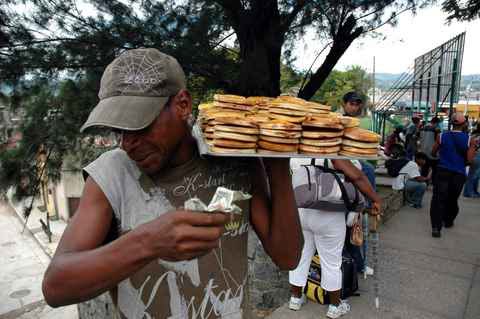 The draft guidelines for economic and social policy proposed by the Cuban communists declare that equal rights and opportunities exist for all citizens, not egalitarianism. But at no point do they give respect to the rights of Cubans.
The draft guidelines for economic and social policy proposed by the Cuban communists declare that equal rights and opportunities exist for all citizens, not egalitarianism. But at no point do they give respect to the rights of Cubans.
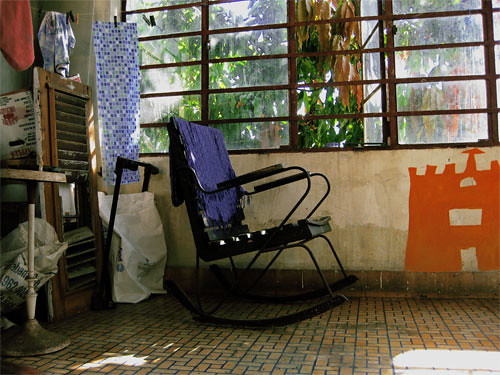


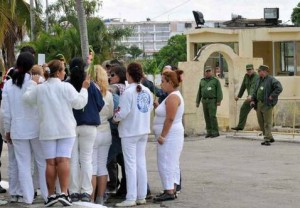 More than 50 dissidents and activists were arrested on December 10 in Cuba by the combined forces of the National Police and State Security for attempting to mark the International Day of Human Rights, according to the Cuban Commission for Human Rights and National Reconciliation led by Elizardo Sánchez Santacruz.
More than 50 dissidents and activists were arrested on December 10 in Cuba by the combined forces of the National Police and State Security for attempting to mark the International Day of Human Rights, according to the Cuban Commission for Human Rights and National Reconciliation led by Elizardo Sánchez Santacruz.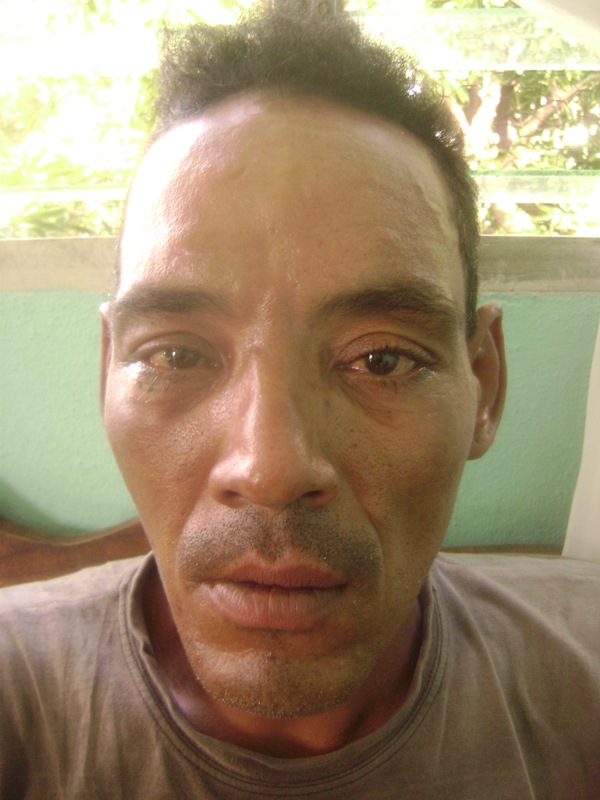
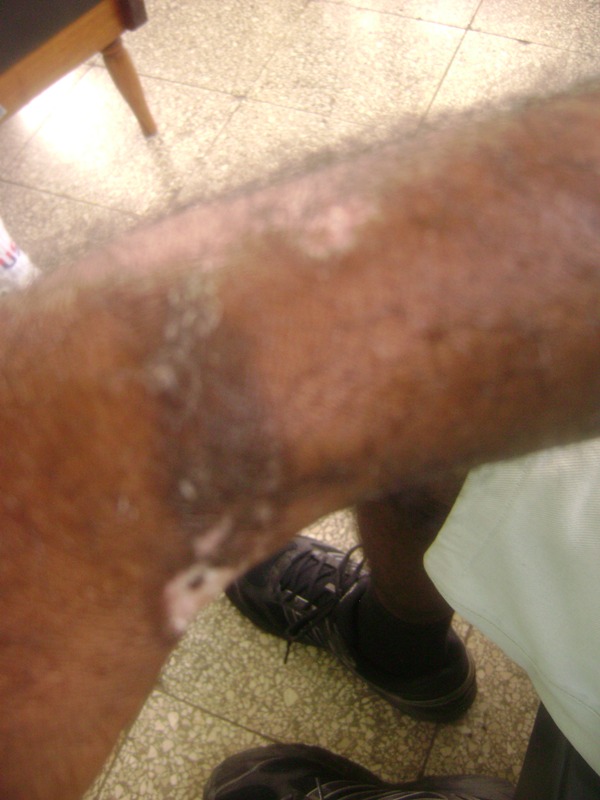
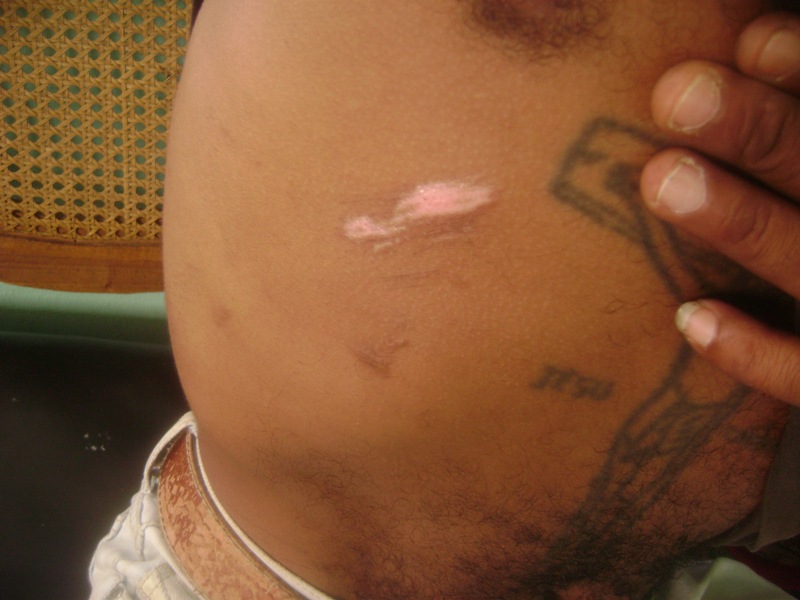


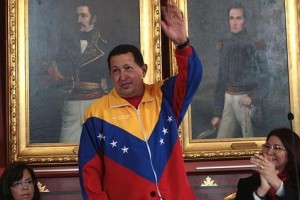 While Hugo Chavez reported to the Venezuelan Parliament his intention to establish an armed forces of the extreme left, that would make government decisions and prevent the triumph of right in the elections of 2012, his Cuban mentors promoted some liberal measures to survive without the support that put him over the top when he assumed absolute power decades ago.
While Hugo Chavez reported to the Venezuelan Parliament his intention to establish an armed forces of the extreme left, that would make government decisions and prevent the triumph of right in the elections of 2012, his Cuban mentors promoted some liberal measures to survive without the support that put him over the top when he assumed absolute power decades ago.